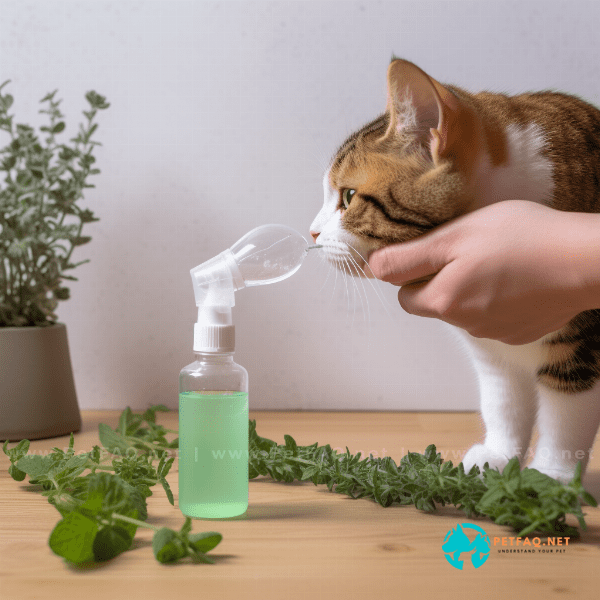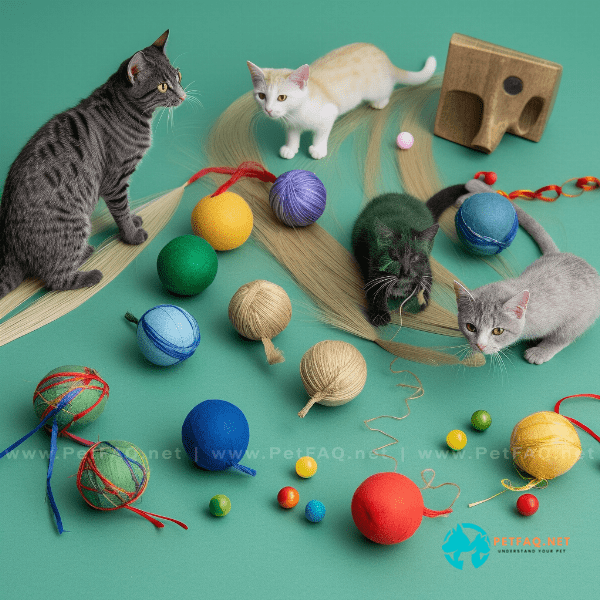Table of Contents
- What is Catnip and How Does it Work?
- The Importance of Dental Health in Cats
- How Catnip Can Promote Dental Health in Cats
- The Benefits of Catnip in Reducing Plaque and Tartar Build-up
- Using Catnip to Encourage Chewing and Promote Healthy Teeth and Gums
- Tips for Incorporating Catnip into Your Cat’s Dental Health Routine
- Precautions to Take When Giving Your Cat Catnip for Dental Health
What is Catnip and How Does it Work?
Catnip is a natural herb that is part of the mint family, also known as Nepeta cataria. It is native to Europe and Asia, but it can now be found all over the world. Catnip contains a chemical compound called nepetalactone, which is responsible for its unique properties. This chemical compound interacts with a cat’s olfactory system and triggers a response in their brains that makes them feel euphoric and playful.
When a cat smells catnip, it can cause a range of reactions such as rubbing against the plant, rolling on the ground, or even jumping around excitedly. This is because the nepetalactone in catnip binds to the receptors in a cat’s nasal tissue, which then sends a signal to the brain’s pleasure and reward center. The euphoric effect can last for up to 15 minutes before it starts to wear off.
It is important to note that not all cats are affected by catnip. The response to catnip is believed to be hereditary, and around 50% of cats have no reaction at all. Additionally, the effect of catnip is not harmful to cats and is considered safe for them to consume. In fact, catnip has some potential health benefits for cats, including promoting dental health.
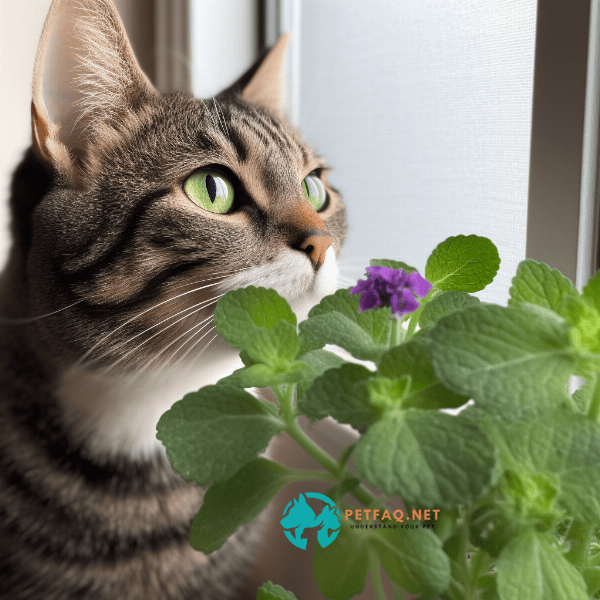
The Importance of Dental Health in Cats
Dental health is an essential aspect of your cat’s overall wellbeing. It’s not just about keeping their breath fresh or preventing tooth decay; good oral hygiene can help prevent a range of health problems in cats. A cat’s dental health is particularly important because their teeth are designed for tearing and shearing meat, making them more prone to wear and tear.
Dental problems in cats can include tooth decay, gum disease, and tartar build-up. If left untreated, these conditions can lead to painful infections, loss of teeth, and in severe cases, even systemic health problems. For example, bacteria from gum disease can spread throughout the bloodstream and cause infections in the kidneys, liver, and heart.
Regular dental check-ups and preventative care, such as teeth brushing, can help maintain good dental health in cats. Incorporating catnip into your cat‘s dental routine can also be beneficial, as it encourages chewing and can help reduce the build-up of plaque and tartar. By prioritizing your cat’s dental health, you can help them live a longer and happier life.
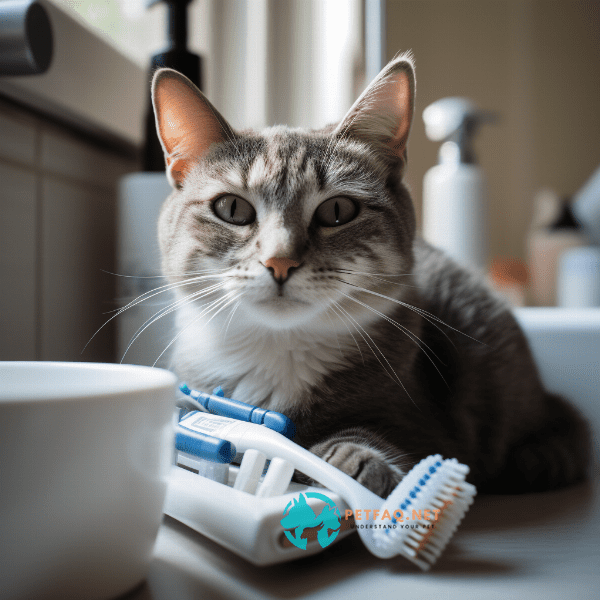
How Catnip Can Promote Dental Health in Cats
Catnip is not just a fun treat for cats; it can also have some potential health benefits, including promoting dental health. When cats chew on catnip, it can help to mechanically remove plaque and tartar from their teeth, which can help prevent tooth decay and gum disease. Chewing can also stimulate the production of saliva, which contains enzymes that can help to break down bacteria and reduce the build-up of plaque.
Furthermore, the nepetalactone in catnip has antimicrobial properties that can help to kill off harmful bacteria in the mouth. This can help to prevent gum disease and other oral health problems. Additionally, catnip is a natural source of vitamins and minerals that can support your cat’s overall health, including their dental health.
It’s important to note that while catnip can help promote dental health in cats, it should not be used as a replacement for regular dental check-ups and preventative care. By incorporating catnip into your cat’s dental routine, alongside regular brushing and professional cleanings, you can help to keep their teeth and gums healthy and prevent oral health problems.
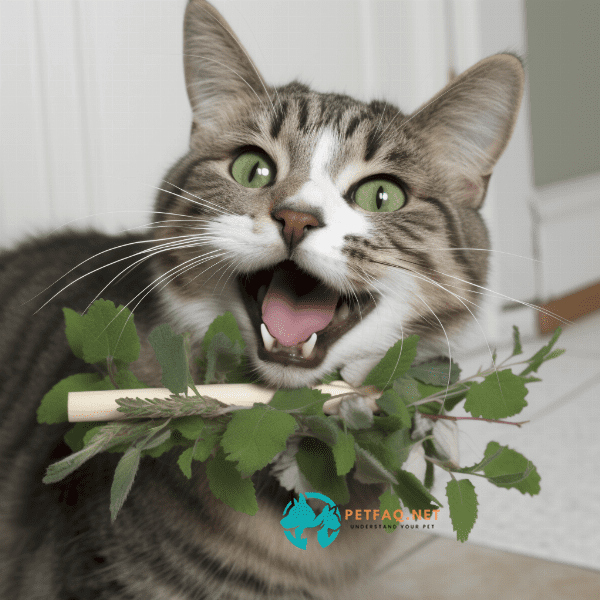
The Benefits of Catnip in Reducing Plaque and Tartar Build-up
Plaque and tartar build-up are major contributors to dental problems in cats. Plaque is a sticky film of bacteria that forms on the surface of teeth, and if it’s not removed, it can harden into tartar. Tartar build-up can cause gum irritation, inflammation, and bleeding, which can ultimately lead to tooth decay and gum disease.
Fortunately, catnip can be an effective tool in reducing plaque and tartar build-up in cats. When cats chew on catnip, it helps to mechanically remove plaque from their teeth. The rough texture of the herb can scrape away the sticky film of bacteria, preventing it from hardening into tartar.
Additionally, catnip can stimulate the production of saliva, which helps to wash away food particles and bacteria from the mouth. Saliva also contains enzymes that can help break down bacteria and reduce the build-up of plaque.
By incorporating catnip into your cat’s diet, you can help to reduce the risk of dental problems caused by plaque and tartar build-up. However, it’s important to remember that catnip should be used as a supplement to regular dental care, not as a replacement. Regular dental check-ups and preventative care are essential for maintaining your cat’s dental health.
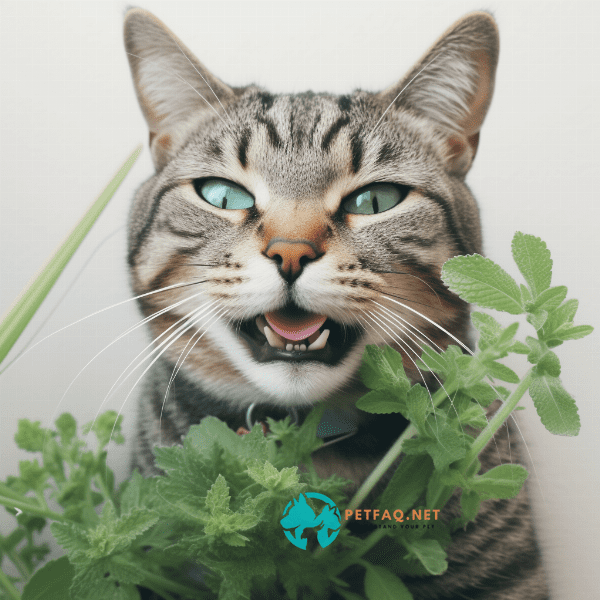
Using Catnip to Encourage Chewing and Promote Healthy Teeth and Gums
Encouraging your cat to chew can be an effective way to promote healthy teeth and gums. When cats chew, it helps to stimulate blood flow to their gums and can help to prevent plaque and tartar build-up. Additionally, chewing can help to strengthen their teeth and jaw muscles, which can improve their overall oral health.
Catnip can be a great way to encourage your cat to chew. When cats consume catnip, it can stimulate a chewing response, which can help to scrape away plaque and food particles from their teeth. Chewing can also stimulate the production of saliva, which can help to neutralize harmful bacteria in the mouth.
Additionally, catnip contains vitamins and minerals that can support healthy teeth and gums. For example, calcium is essential for strong teeth and bones, while potassium can help to prevent gum disease. By incorporating catnip into your cat’s diet, you can provide them with these important nutrients and promote their overall oral health.
Overall, catnip can be a useful tool in promoting healthy teeth and gums in cats. By encouraging your cat to chew on catnip, you can help to reduce the risk of dental problems and support their overall wellbeing.
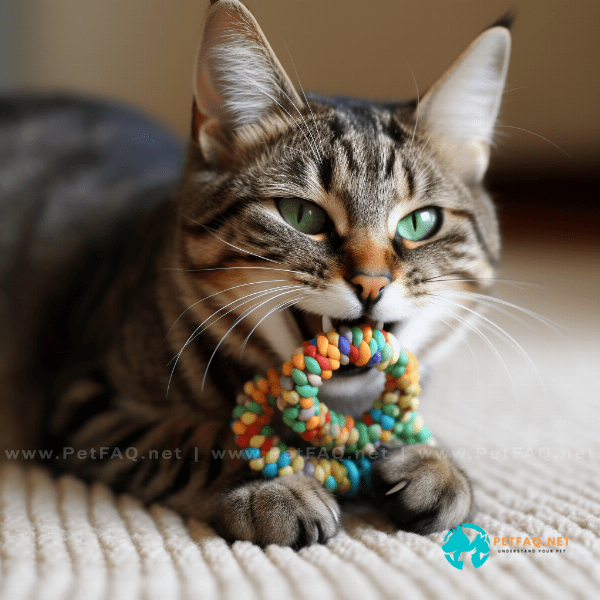
Tips for Incorporating Catnip into Your Cat’s Dental Health Routine
If you’re interested in incorporating catnip into your cat’s dental health routine, there are a few things to keep in mind. Here are some tips to help you get started:
1. Choose the right catnip: Look for high-quality, organic catnip that is free from additives and preservatives. This will ensure that your cat is getting the most benefit from the herb.
2. Offer catnip in different forms: Catnip can be offered in a variety of forms, including fresh, dried, or in a spray. Experiment with different types to see what your cat prefers.
3. Use catnip as a reward: Offer catnip as a reward for good behavior or after brushing your cat’s teeth. This can help to make the dental care process more enjoyable for your cat.
4. Monitor your cat’s intake: While catnip is generally safe for cats, it’s important to monitor their intake. Too much catnip can cause digestive upset, so offer it in moderation.
5. Don’t rely on catnip alone: While catnip can be a useful tool in promoting dental health, it should not be relied on as the sole method of care. Regular dental check-ups and preventative care are essential for maintaining your cat’s oral health.
By incorporating catnip into your cat’s dental health routine, you can help to promote healthy teeth and gums and make dental care more enjoyable for your feline friend.
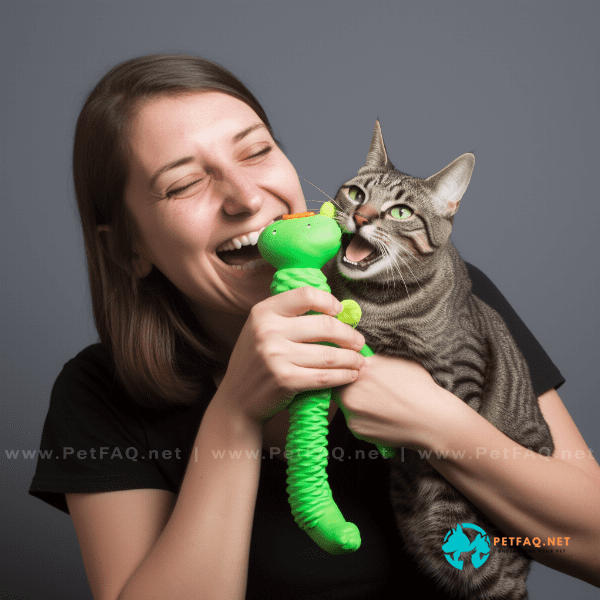
Precautions to Take When Giving Your Cat Catnip for Dental Health
While catnip is generally safe for cats, there are a few precautions you should take when giving it to your feline friend for dental health. Here are some things to keep in mind:
1. Offer catnip in moderation: While catnip is not addictive or harmful to cats, offering it in excess can cause digestive upset. It’s important to offer it in moderation to prevent your cat from consuming too much.
2. Consult with your veterinarian: If your cat has a history of digestive problems or other health issues, it’s important to consult with your veterinarian before offering catnip. They can provide guidance on whether it’s safe for your cat and how much to offer.
3. Avoid using catnip as a replacement for dental care: While catnip can be a useful tool in promoting dental health, it should not be used as a replacement for regular dental care. Your cat still needs regular dental check-ups and cleanings to maintain their oral health.
4. Store catnip safely: Keep catnip out of reach of your cat when not in use to prevent them from consuming too much. Additionally, make sure to store it in a cool, dry place to prevent spoilage.
By taking these precautions, you can help ensure that your cat is safely and effectively incorporating catnip into their dental health routine. As always, if you have any concerns about your cat’s dental health, consult with your veterinarian for personalized guidance.
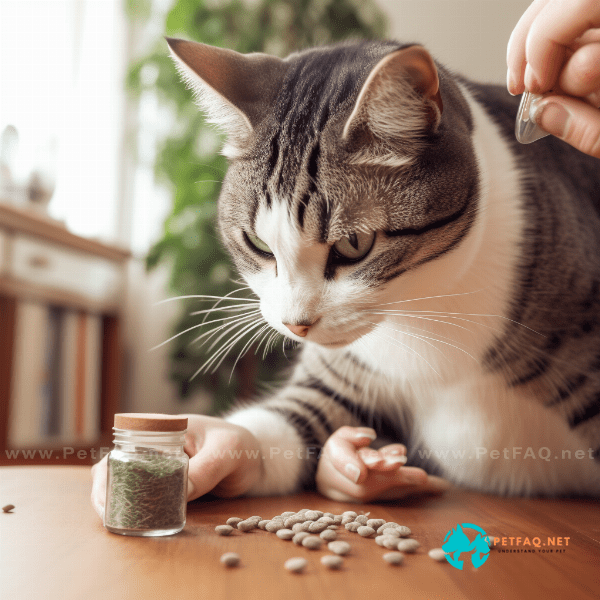
Frequently Asked Questions (FAQs) about Catnip and dental health in cats:
1. How does catnip relate to dental health in cats?2. How does the use of catnip fit into an overall dental care regimen for cats?
3. Can catnip be used in conjunction with other dental health products for cats?
4. Is there a specific type of catnip that is best for dental health in cats?
5. How does catnip help with dental hygiene in cats?


